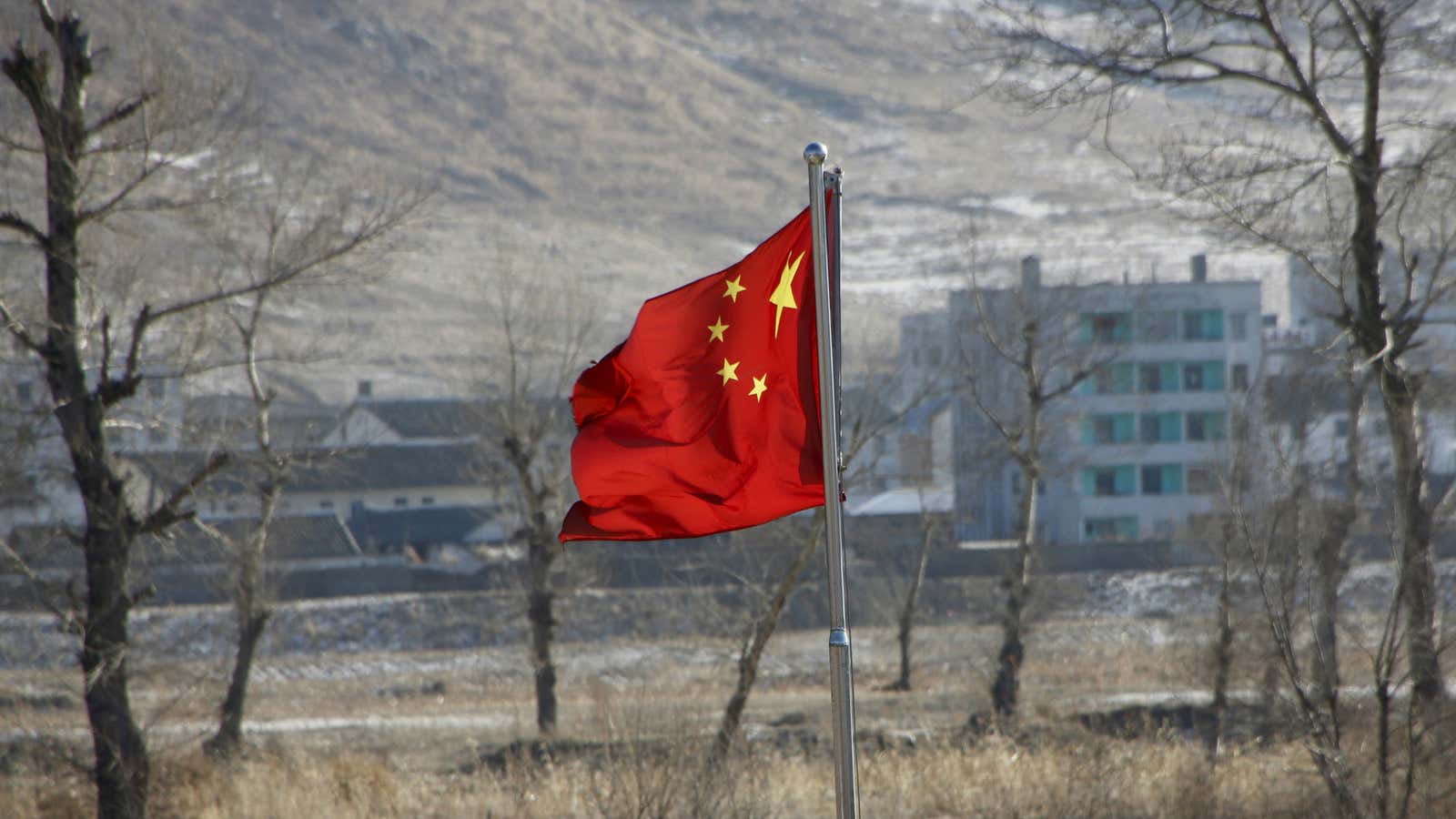How do you solve a problem like Pyongyang?
There’s been a great deal of bluster and handwringing in response to North Korea’s latest nuclear test. The UN is talking of new sanctions, American lawmakers are dreaming up new punishments, South Korea is retaliating with K-Pop, and Japan is anxiously testing the air for radiation—but everyone recognizes that there’s only one country that can actually do anything about North Korea’s latest rattling of its nuclear saber.
But will China, North Korea’s most important (read: sole) economic and political ally, actually curb Kim Jong-un, Pyongyang’s belligerent leader?
Washington, certainly, is hoping that Beijing will do it a solid: US secretary of state John Kerry has called on China to abandon its “business as usual” relationship with North Korea. Editorial writers agree that China must do something about its troublesome protégé.
Many Chinese feel the same way. Their anger is palpable on Chinese social media sites, where Kim is being pilloried and mocked.
But although the Chinese government has condemned the nuclear test, it is hard to imagine that Beijing will to much more than wag its finger in Pyongyang’s direction. It may go along with new UN sanctions, but don’t read too much into that. China was also unhappy with North Korea’s last nuclear tests, in 2013, and expressed its displeasure by agreeing with the US on new sanctions. Within weeks, though, Beijing was breaking ranks with the international community to once again support its lonely ally.
The uncomfortable truth is that China doesn’t have too many options. Its “historic relationship” with North Korea may leave the impression of one-sidedness—Beijing gives, Pyongyang takes—but there are political and economic realities that tie the hands of Chinese president Xi Jinping.
For starters, Xi has rather more pressing problems right now. The Chinese economy, that mighty engine, is slowing, and many ordinary Chinese are feeling the impact. The free-fall in stock prices this week is likely just the start of more pain to come.
But even if the economy were chugging along just fine, China would be loath to withdraw its support for North Korea—not because it fears that Kim will simply replace China with Russia as his main sponsor (even though Russia has recently been making friendly overtures to him) and not because, as some analysts have long argued, Beijing regards Pyongyang was a weapon to brandish against the US and Japan.
If anything, many in Beijing worry that North Korea poses a great danger to China.
They fear that a withdrawal of Chinese support would send North Korea into an economic tailspin, leading swiftly to a full-blown humanitarian crisis. Many outside China agree, but whereas the West worries what, in the event of a collapse, would happen to North Korean nukes, China worries for the impact on North Korea’s 25 million people. The assumption is that millions would flee the inevitable chaos, slipping across the 1,400-km (880 mile) border with China. To understand the terrors such a prospect raise in China, just look at the European response to the Syrian refugee crisis—and multiply that by 10.
Beijing has drawn up detailed contingency plans for a North Korean doomsday, but they offer Xi little reassurance. The safer, smarter play, is to keep North Korea propped up and limping along. If that means Xi has to endure some embarrassment and anxiety caused by his bellicose neighbor, that—for him—is the lesser of the possible evils.
